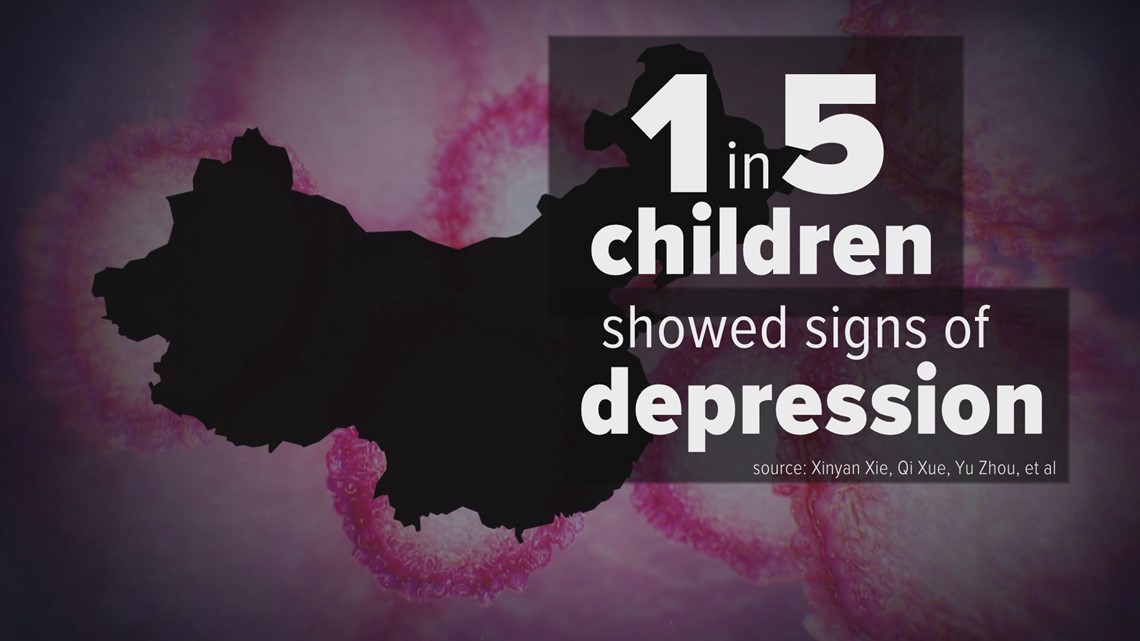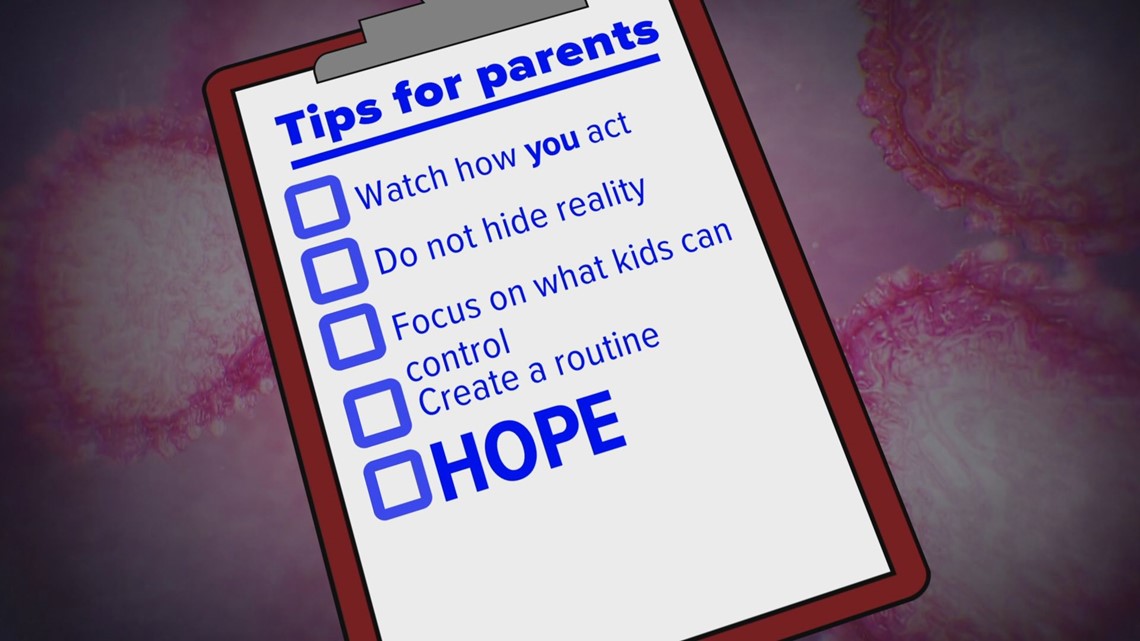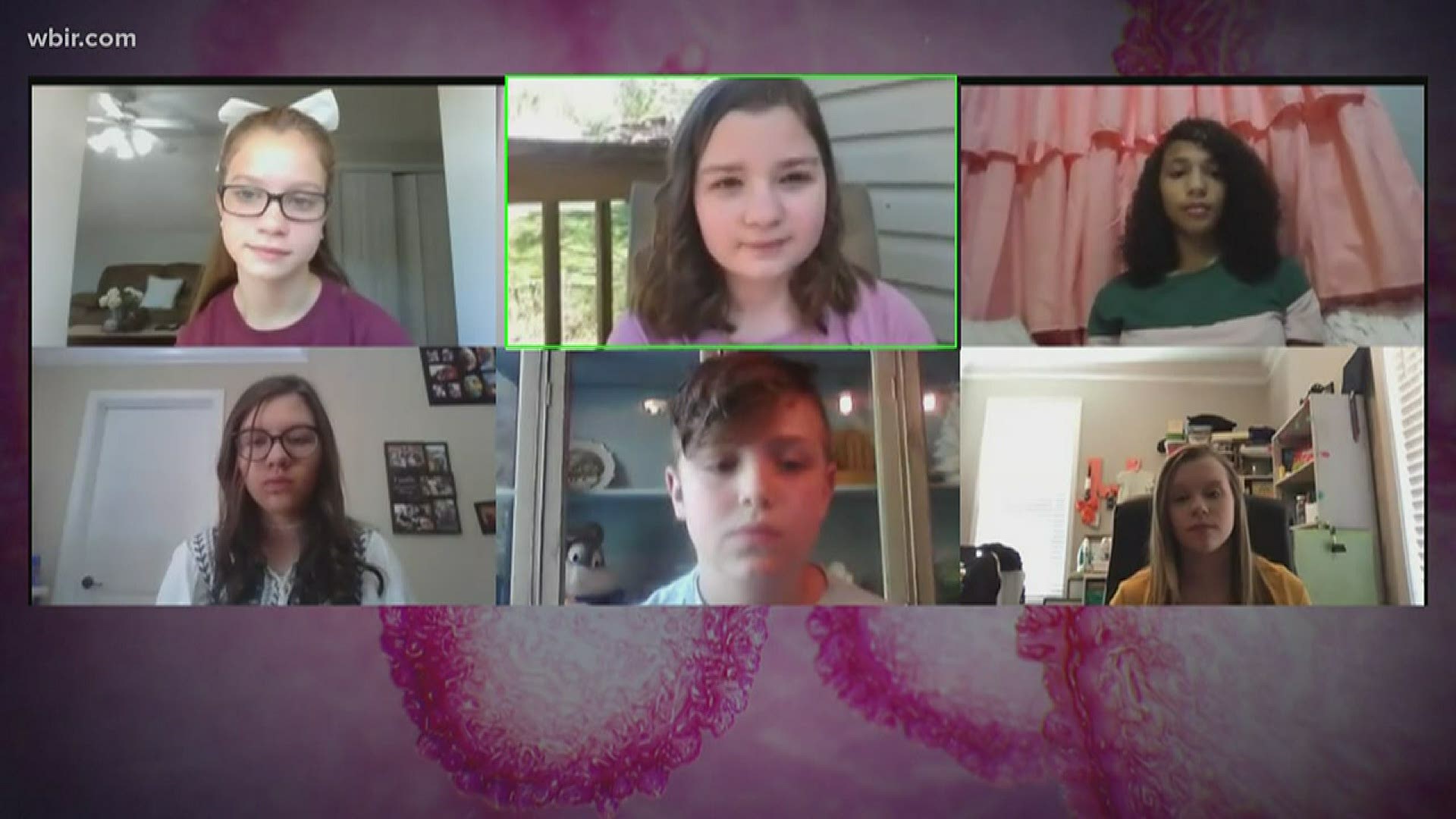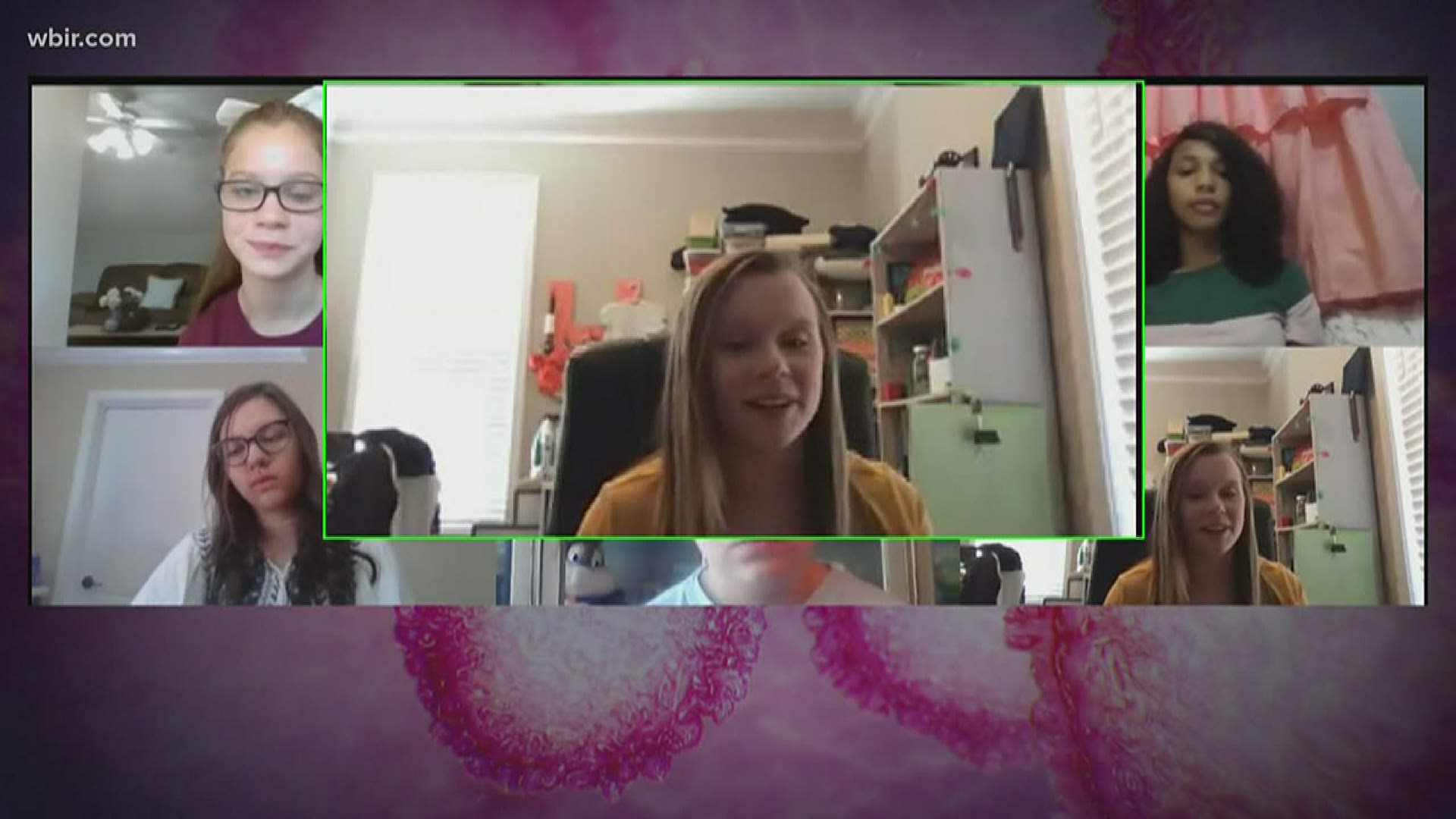ANDERSON COUNTY, Tenn. — With their playgrounds deserted and their classrooms empty, children in the coronavirus era socialize on video-chat software like Zoom.
But for a generation raised on screens, many want human interactions — time with their friends and visits to their grandparents' house.
"It’s just like overwhelming because you really want to do that stuff, but you can’t," Anderson County sixth-grader Ariana Mckenzie said. "So you have all the energy bottled up inside and you just want to let it out."
They are not just sick of staying home. For many children, coronavirus concerns run deeper.
Sixth-grader Xane Daugherty worries about his sister, who could face complications if she gets sick. Zavie Ford, 13, said she has not seen her grandparents in weeks for fear of inadvertently infecting them.
"I don’t know what’s going to happen in the future or what’s coming," Mia Baylis, 13, said.
To describe how they're feeling, a group of six Anderson County students used words like "overwhelmed," "scared" and "sad."
Each said they were concerned a member of their family might contract COVID-19.


It is early in the scientific research, but an initial study from the virus epicenter in China showed one in every five children surveyed after a month-long quarantine reported signs of depression.
Experts are split. Many say children are resilient and will likely bounce back from a period of unprecedented lockdown. However, they say children who were already in disadvantaged situations may struggle more, especially as COVID-19 continues damaging local and national economies.
"Keep an open line of conversation with the kids," said Thriveworks licensed therapist Amanda Gilliam. "Kids feel the anxiety the world is feeling right now, they feel the stress and the pressure, especially if the adults in their lives are feeling that stress and pressure."
She said parents should not hide the realities of the world from their children.
"If they're asking questions, they're ready for answers," she said. She also said adults should keep their anxieties in check.
It is important to focus on what kids can control — even something as simple as washing their hands to stay clean.
"With an older child you may be able to explain more about social distancing or the people who are more at risk," she said.
Creating a routine is important too, especially after schools and sports have faced major disruptions.
"Kids thrive on routine, for sure," Gilliam said. "So this is really knocking a lot of them out of sorts and making them feel less in control of their lives."


As a play therapist, she said she's already seen younger children who have begun to process the pandemic through their play, with more examples of "playing doctor" or feeling stuck inside.
"Kids process their environment and process their stressors through play," she said.
The bottom line, Gilliam said, is that it's important to focus on hope when speaking to children.
"I think that our main thing is that we just need to stay strong and brave and positive," Mckenzie said. "And I think we all need to have a positive mindset and we’re all going to get through this."


